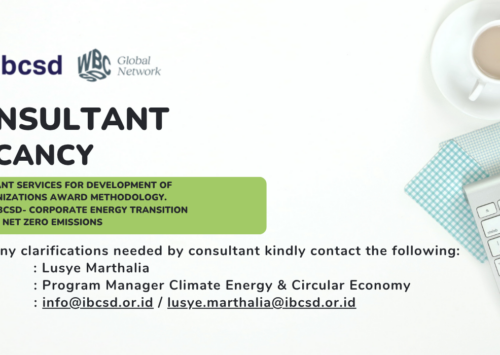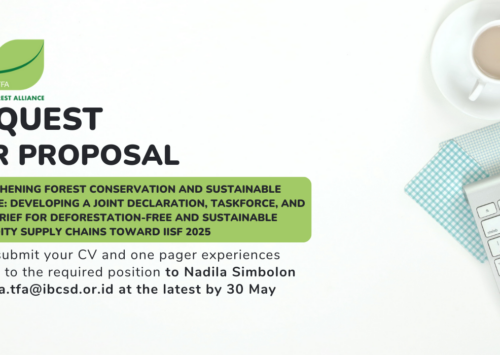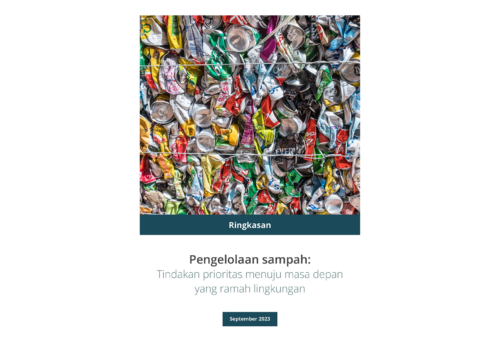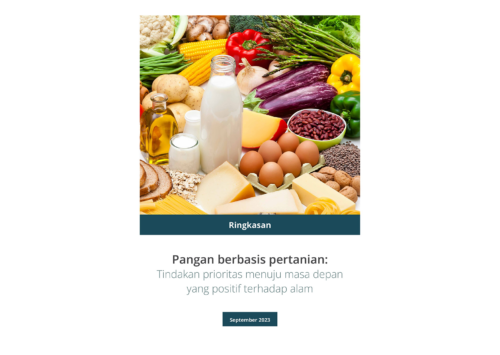“The issue of food loss and waste is a serious concern for Indonesia and other countries, as stated by the National Food Agency in the UN Food Systems Summit +2 Stocktaking Moment 2023 forum,” said Febrina Cholida, as Food Security Analyst who represented the Deputy II for Food Insecurity and Nutrition of the National Food Agency, Nyoto Suwignyo, in the keynote speech delivered at this event. “Therefore, we want to achieve Better Nutrition, Better Behavior, and Better Collaboration to jointly address this issue.”
The main idea of the Consumindful initiative is to increase consumer participation in preventing food waste. This movement is expected to amplify the message to a wider audience to be wiser in consuming and not wasting food. Spreading the message of the importance of reducing food waste is considered necessary, because Indonesia experiences economic losses of 4-5% of total GDP due to food loss and waste based on Bappenas data in 2021. The Consumindful initiative is in collaboration with WRAP, a non-profit environmental organization based in the UK that has experience working on projects related to changing consumer behavior. “The consumption phase needs to be considered because the most food waste is generated at this stage. As we all know that humans are complex creatures, their behavior is also complex. For this reason, we created an intervention that targets the 18-34 age group who are known to be social media savvy and concerned about environmental issues,” said Michael Jones, WRAP’s International Partnership Manager.
The Consumindful initiative was also made possible with the support of the Danish Embassy in Indonesia. “Inviting the younger generation to bring change to environmental issues is very important,” said Hanne Larsen, Minister Counsellor for Food and Agriculture at the Danish Embassy in Indonesia. She continued, “Denmark continues to support Indonesia to address the issue of food loss and waste because we share the same mission to achieve a circular economy. Consumindful is an exciting initiative as it leverages IBCSD’s extensive network with WRAP’s global experience”.
Consumindful is a follow-up initiative to the previous initiative called GRASP 2030 (Gotong Royong Atasi Susut dan Limbah Pangan 2030) which was launched on September 8, 2021. GRASP 2030 is a concrete effort to unite all actors across the food system chain in reducing food loss and waste in Indonesia. A total of 22 actors including companies, associations, and other organizations in the food sector have committed to participate in this movement. This event was also made possible with the support of Nutrifood Indonesia, which is part of GRASP 2030.
Yogyakarta is the location of the Consumindful campaign because it is known as a tourist and student area with many visitors from other regions, making food waste handling efforts in Yogyakarta very important. In addition, the Provincial Government of Yogyakarta Special Region (Pemprov DIY) also has a commitment to encourage efforts to handle food waste.
Regional Secretary of Yogyakarta Special Region, Beny Suharsono said, “Appreciation for being an active partner of the government to manage food according to its portion. We have high hopes that this campaign will bring change, because big changes certainly start with small steps that are consistent and measurable. Our message is to utilize the results of this campaign as a stepping stone and create collaboration between parties in the Special Region of Yogyakarta.”
Consumindful implementation was carried out by conducting campaigns on social media as well as in schools, universities, hotels, restaurants and cafes in Yogyakarta Province. There are 3 main activities carried out. First, by involving elementary school children to play a board game with the theme “Ramadan Calendar Good Deeds”. This calendar contains positive activities during the month of Ramadan that children can do with their parents and other family members, including activities to prevent food waste at home. The involvement of children in these activities is expected to act as a medium to convey the message to parents and other family members that food waste behavior is not good. The calendar can also be a fun learning tool for children. As a result, 75% of calendar users said that there was less food waste at home and they were encouraged to prepare less food so that nothing was wasted.
The next activity was a social media campaign. This campaign involved an influencer who actively shares content related to eco-friendly lifestyle on her Instagram account, Astri Puji Lestari (@atiit). The campaign was also carried out through infographic content and educational quizzes inviting people to eat more wisely and prevent food waste. As a result, more and more people understand the negative environmental impact of food waste behavior. The last activity was through the installation of banners on campuses, hotels and restaurants with messages to eat more wisely and take sufficient portions so that there are no leftovers. From this activity, the campuses, hotels and restaurants involved reported that less food was wasted.
Solving the food waste problem from various perspectives and sectors is necessary to ensure that the food waste reduction target is achieved. On this occasion, various multi-stakeholder actors who play a role in the food system were involved as responders to the discussion on the results of the Consumindful campaign carried out over the past 6 months. A number of figures invited were Dr. Dwi Larasati, Lecturer at the Faculty of Agricultural Technology, Gadjah Mada University; RR. Fitri Diah W., Head of Creative Economy Development at the DIY Tourism Agency; R. Hery Sulistio Hermawan, Acting Head of DIY Agriculture and Food Security Agency; Dr. Bambang Pramusinto, Acting Head of Semarang City Food Security Agency; Erwan Sakti, IFBEC Yogyakarta representative; and Eva Bachtiar, CEO of Garda Pangan.
It is hoped that the new data and knowledge gained from this campaign can serve as input and inspire various parties in their efforts to reduce food waste. It is also hoped that more people and industries will care about the issue of food loss and waste and take concrete actions in their daily lives.








